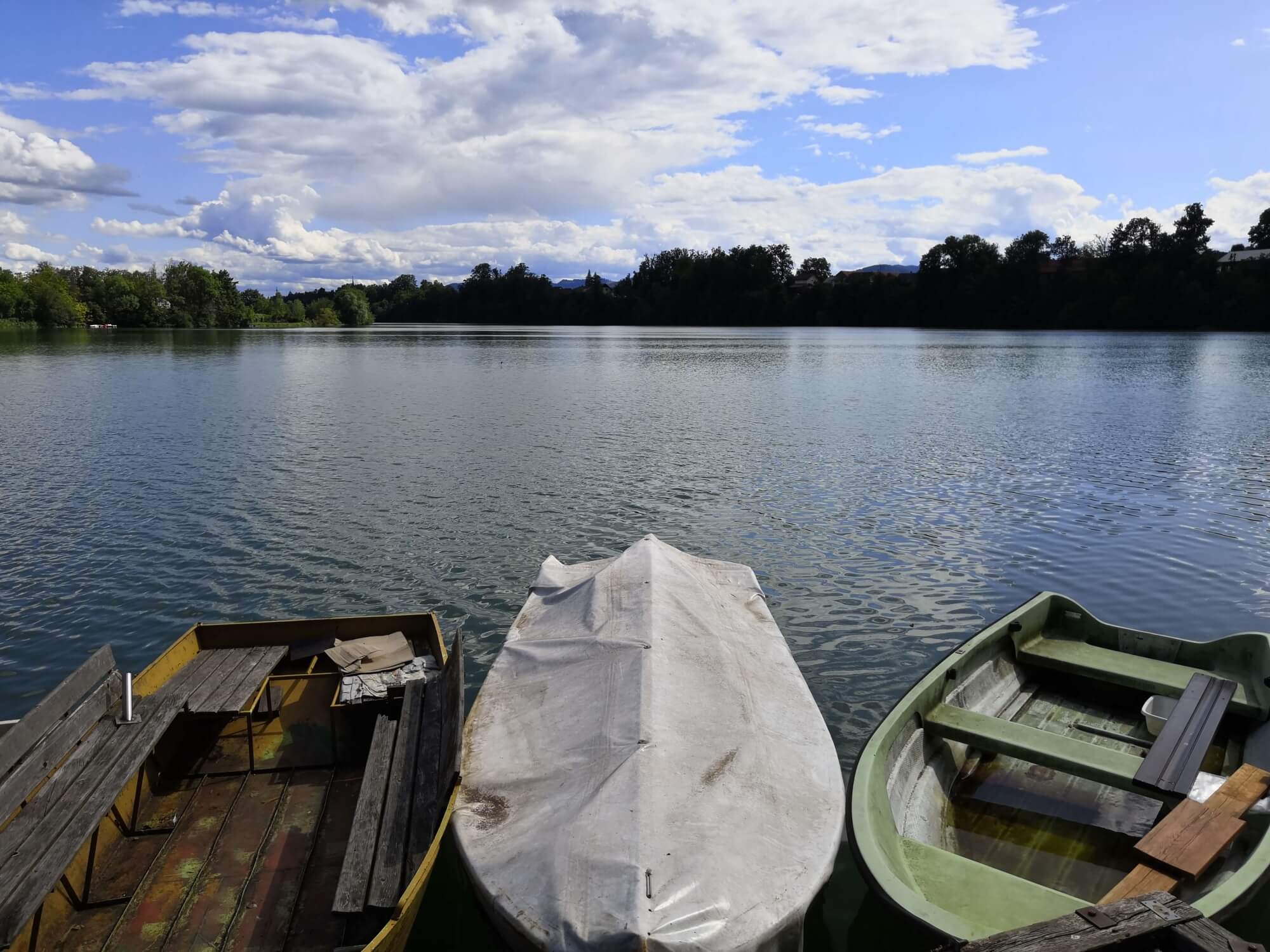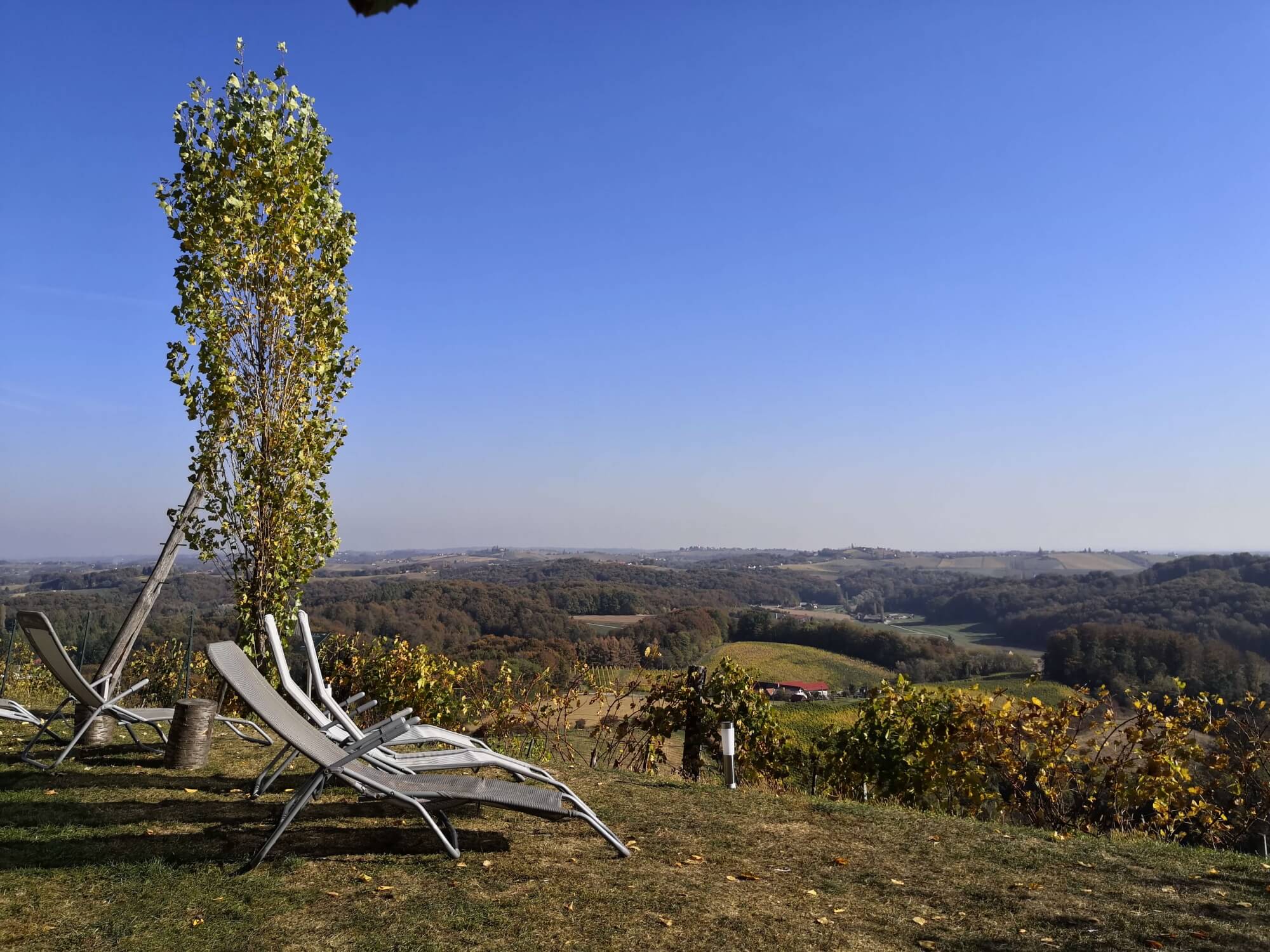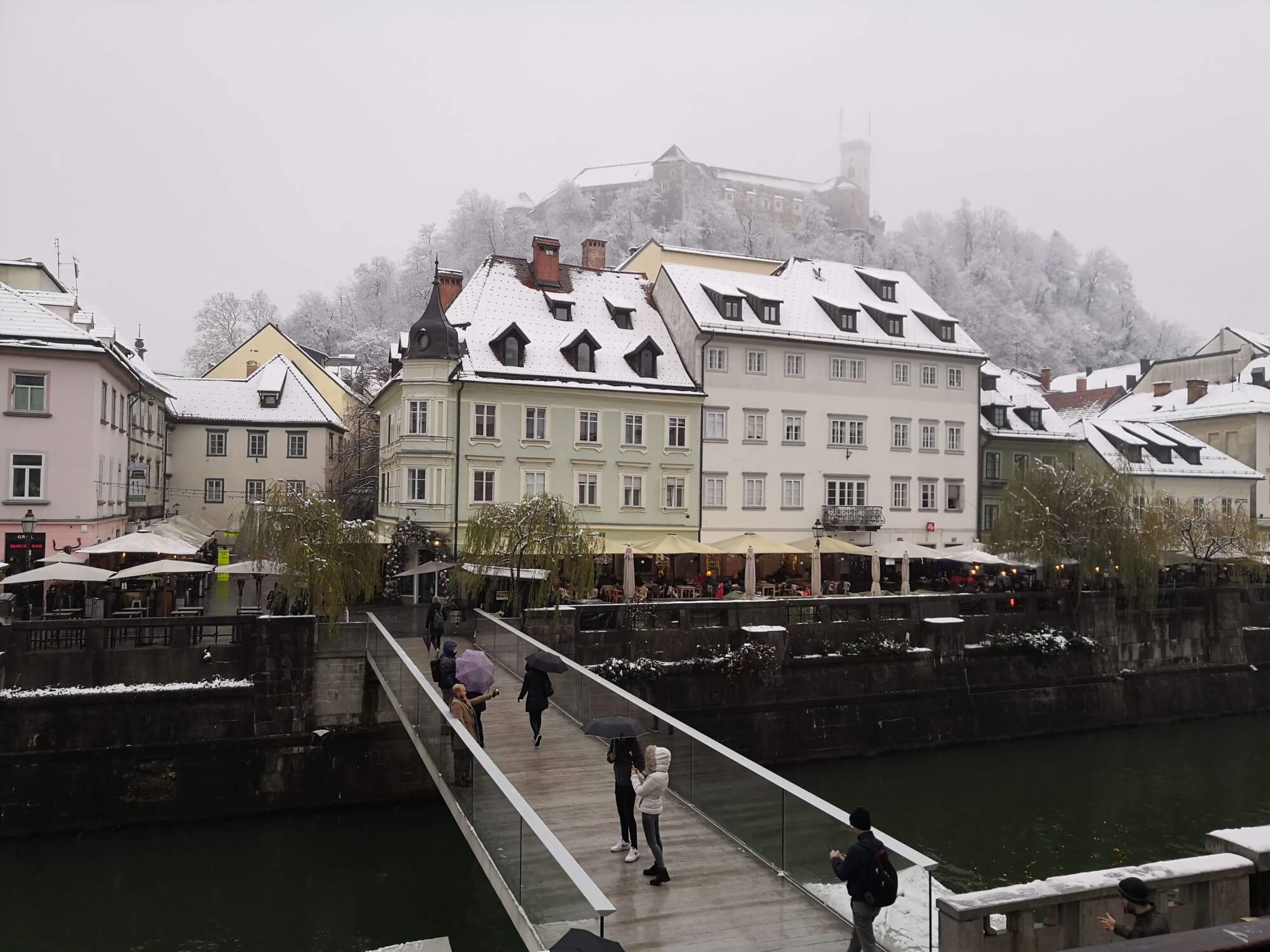Do foreigners in Slovenia feel more or less safe sitting out covid-19 here than in their home country, and what are their experiences? All the stories in this series are here. If you' like to contribute, see here or at the end of the story
Who are you, and how did you come to be here?
Hi, my name is Mark Evans and I'm an Australian immigrant to Slovenia, originally from our capital city of Canberra. My husband is a Slovene living and working in Ljubljana, and I moved here to live with him back in April, 2018 after completing my BA in European politics and public policy. I'm currently working part time while searching for full-time work in my field (difficult to find without citizenship, sadly!). I'm also mulling over applying for an MA.
Tell us a little about your situation and sanity levels.
Well, we're alive, healthy and mostly sane, which is luckier than many. We live in a multistory apartment building and this last month has left me extremely envious of anyone with a proper balcony or a garden. With the incredible weather I'd love to be out cycling far more than I am, and I'm envious of my family back home in Canberra, who have far more space and easy access to wilderness areas which they can enjoy safely. My husband and I share our apartment building with many retirees, so we're worried about the risk of bringing the virus back home with us and endangering the health of our older neighbours.

What do you think about the economic measures the government is taking, are they helping your business?
My husband was right in the middle of changing jobs as this crisis struck, and we're incredibly fortunate that his work life hasn't been too severely disrupted by the pandemic because he can work remotely - many don't have this privilege. While the government's measures are rock solid in supporting formal employees, they fall short for the people who need support the most - already marginalised members of society working in low paying, informal jobs, like migrant workers.
When did you realise that coronavirus was going to be a big issue?
I didn't pay much attention to the crisis in China, and only started to follow it after the outbreak in South Korea. With a background in public policy I was paying more attention to the news than many, but even then I under-estimated the severity of the threat. I was well aware of the enormous amount of work which governments and non-governmental organisations had poured into pandemic preparedness since SARS in 2002-3. I hadn't realised how far these measures had eroded since 2016, or how little attention our governments would pay to experts until it was too late.

What is your impression of the way Slovenia is dealing with the crisis?
My feelings on the Slovene handling of the crisis are mixed. In the short-term, the current administration has been successful in controlling the epidemic, and taken the difficult decision to lock the country down in a timely manner. However, this is coming hand-in-hand with naked power-grabbing by Janez Janša and his allies, as they use the crisis as an excuse to replace qualified public servants with yes-men, to threaten dissenters and to stifle the media. While I do not feel endangered by Covid19 here in Slovenia, I am extremely worried about the path this administration will take in the aftermath of the pandemic. If it follows in the footsteps of Janša's allies in Hungary, I suspect these power-grabs will only intensify. And if Hungary's recent attacks on democracy and the rights of LGBT+ citizens are any evidence, I am deeply worried that SDS will soon be turning its sights on the rights of couples like me and my husband. I am, after all, the kind of gay immigrant "degenerate leftist" Demokracija magazine warns its readers about.
How does that compare to the situation in Australia?
Australia's approach to the pandemic has contrasted strongly to Slovenia's - where I am comfortable in the short term in Slovenia but worried about the long term, I feel the opposite for Australia. Our government was far slower than Slovenia to act - we had weeks of extra time before the outbreak really started, but were very slow to take it seriously. As a result, an epidemic arose and thousands of Australians have now been infected, while dozens are already dead. However, once the federal government finally did act, it brought together a coordinated cabinet of state and territory governments from both sides of politics to organise a unified and de-politicised response. Its handling has definitely not been perfect, but the government has shown remarkable cooperation with opposition parties, and has made hard decisions for the public good which I never would have expected it would step up to make.
What about official communications from the authorities, compared to your home country?
Communications in Australia followed the same trajectory as its policy response - slow, confused and conflicted at first, and wasting many weeks. As the epidemic picked up speed our Prime Minister, Scott Morrison, infamously declared he'd still be going to watch the rugby in a packed stadium. However, once the scale of the impending catastrophe became undeniable, the government got its act together and put together a responsible and effective communication campaign which has finally convinced the public of the danger.
Here in Slovenia I've observed very different communications from the civil service versus the government itself, and the disconnect worries me. Civil services and businesses largely seem to have responded quickly and capably, and the messaging I see coming from the public sector is encouraging. Much of what I see from the government itself is, however, appalling. It is extremely alarming to see the Prime Minister falsely blaming the WHO for the pandemic on Twitter while his administration abuses the crisis to slander and harass its opponents in the media. A government using its emergency powers to scapegoat "global elites" in the face of all evidence and defame its critics as "escaped mental patients" is something you'd expect from a tinpot dictatorship, not a democratic EU member state. If this behaviour continues - and I expect it will, given SDS' long history of promoting falsehoods and slandering critics - then I am extremely worried about the damage it will do to public trust in government institutions and communications.

What's the one thing you wish you had taken with you into self-isolation?
A working exercise machine! We have an elliptical here at home, but it's broken. I'm an avid cyclist and I'd kill for a good bike machine to have at home, since I can't really get out for rides right now. I'm getting by on at-home workouts but it would be wonderful to have the feeling of motion again.
One thing you have learned about yourself, and one thing you have learned about others during this crisis.
If I didn't know for sure that I was an extrovert before this crisis began, I certainly do now. I miss being able to get out and about in crowds, and I miss being able to see my friends face to face. I think many other people are learning this about themselves too - even if you don't consider yourself a very social person, there are all those little day to day human interactions we rely upon and take for granted. The world can feel like a very lonely place now that they're gone.
If you’d like to contribute to this series please answer the following questions and include a paragraph about yourself and where you’re from, and a link to your website if you would like. Please also send 3-4 photos minimum (including at least one of yourself) to This email address is being protected from spambots. You need JavaScript enabled to view it.. Subject: Corona Foreigner.
Firstly, how are you? Are you alone/with someone? Tell us a little about your situation and sanity levels.
What do you think about the economic measures the government is taking, are they helping your business? (PLEASE IGNORE IF THIS DOES NOT AFFECT YOU)
When did you realise that coronavirus was going to be a big issue?
What is your impression of the way Slovenia is dealing with the crisis? How safe do you feel?
Now compare that to your home country and how they are handling it. What is Slovenia doing better/worse?
What about official communications from the authorities, compared to your home country?
What's the one thing you wish you had taken with you into self-isolation?
What's one thing you have learned about yourself, and one thing you have learned about others during this crisis?






